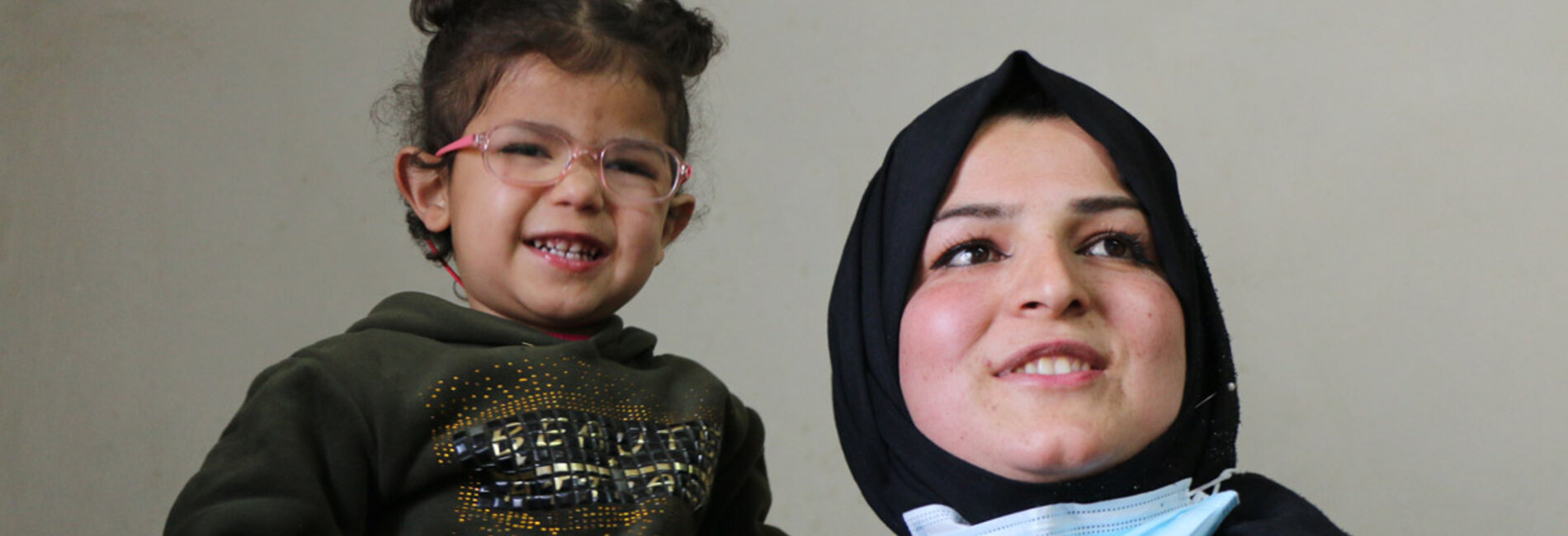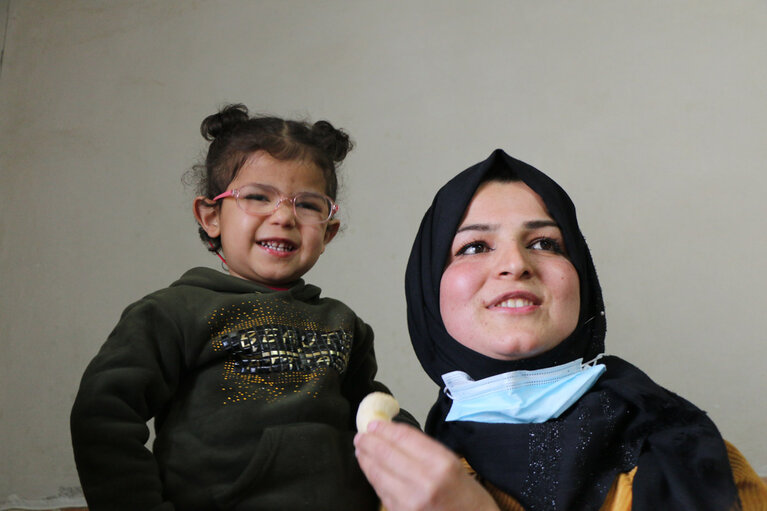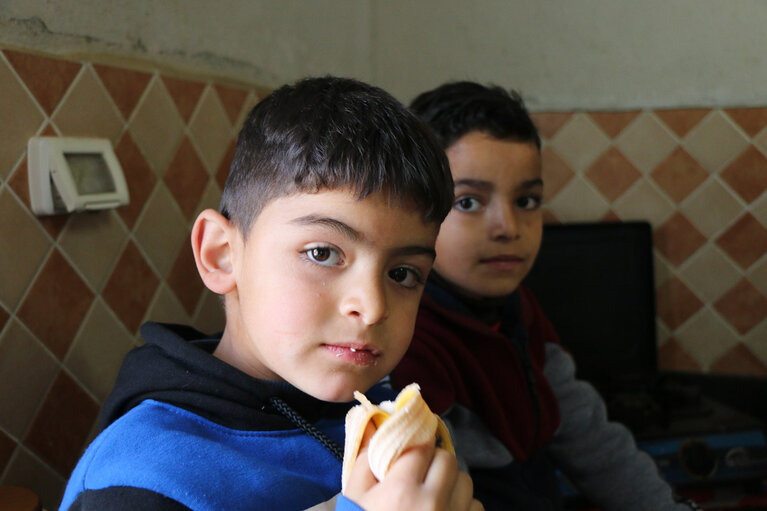עזרה למשפחות בהשגת אוכל מזין
סיפור הצלחה של הקרן ההומניטרית לשטח הפלסטיני הכבוש
אמינה, בת 28, חיה עם בן זוגה, שני בניה ובתה באזור של העיר חברון הנתון לשליטתו הישירה של הצבא הישראלי ומכונה H2.
לאורך השנים נחשפו הפלסטינים תושבי אזור זה לאלימות רבה ולהגבלות מחמירות המוטלות על חיי היומיום שלהם, ומצב זה דחק ברבים מהם לעזוב. רבים מבין 33 אלף בני האדם שעדיין מתגוררים באזור עניים ותלויים בסיוע כדי להגן על משפחותיהם ולתמוך בהן. מגפת COVID-19 החמירה עוד יותר את מצוקתם.למשפחות באזור H2 אין גישה מספקת לאוכל מזין בכמויות מספיקות. הפגיעה קשה במיוחד בבעלי צרכים תזונתיים מיוחדים, כגון נשים הרות ומיניקות וילדים קטנים.
אמינה מובטלת ובן זוגה נג׳יב עובד בעבודות מזדמנות ומשתכר שכר נמוך מאוד. לדברי אמינה, "אחרי שכר הדירה ותשלומים אחרים נשארים לנו רק כמה שקלים". אמינה מכירה בכך שהרגלי התזונה שלה מזיקים לבריאותה: "בדרך כלל אני מוודאת שמעט הכסף שיש לנו ישמש להאכיל את הילדים שלי, כדי שיוכלו לגדול בריאים, ואת אבא שלהם, כדי שיהיה לו כוח לעבוד."
באפריל 2020, חודש אחרי שמגפת COVID-19 פרצה בשטח הפלסטיני הכבוש, התערבה תוכנית המזון העולמית, בתמיכת הקרן ההומניטרית לשטח הפלסטיני הכבוש, כדי לספק סיוע משלים במזון ל־265 משפחות ב־H2, בהן גם משפחתה של אמינה. תוכנית המזון העולמית סיפקה למשפחות שוברים אלקטרוניים, ובכך סייעה להן לקנות אוכל מזין בחנויות מקומיות.
"השובר האלקטרוני שינה את הרגלי האכילה שלנו. עכשיו אני יכולה לבשל לילדי ארוחה ראויה לשמה לא רק בימי שישי. השובר אפשר לי גם לחשוב על הבריאות שלי עצמי ולאכול טוב יותר." (אמינה)
כל אחת מהמשפחות שנבחרו להשתתף בתוכנית כללה אישה הרה או מיניקה, או ילד או ילדה בני פחות מחמש. את השוברים, בשווי 35 ש״ח לאדם מדי חודש, יכלו המשפחות לפדות בתמורה לסוגים ספציפיים של מזון בריא או ויטמינים.
ר'ינה (בת שנתיים וחצי), בתה הצעירה של אמינה, סובלת מפזילה וזקוקה לתשומת לב ולטיפול מיוחדים. המזון האהוב עליה הוא עוף, וכעת היא יכולה לאכול ממנו בסופי שבוע. בימים אחרים אמינה מבשלת נזידים צמחוניים, כגון תבשיל תרד, תפוחי אדמה ועגבניות, ועלי גפן.
כדי להפיק את המירב מהשוברים, סייעה תוכנית המזון העולמית להקים קהילת נשים השואפות להחליף דעות ורעיונות על בריאות ותזונה. הן משוחחות זו עם זו בקבוצת צ׳ט על מניעת אנמיה, בישול בריא ונושאים אחרים הקשורים במזון.
אמינה סובלת ממחסור חריף בסידן, והדבר גורם לה לכאבי מפרקים עזים. הודות לשוברים ולידע החדש שרכשה היא קונה היום מזון עשיר בסידן, כמו מוצרי חלב וטחינה.
"פעם חשבתי שהמוצרים הבריאים היחידים הם המוצרים היקרים שאנחנו לא יכולים להרשות לעצמנו", מודה אמינה. "עכשיו אני יודעת איך להשתמש בירקות, מוצרי חלב, קטניות ופירות כתחליף לערכים התזונתיים שקיימים בבשר. אני נהנית לקרוא כל הודעה בצ׳ט כי כל הודעה כזו מקדמת את הידע שלי על החומרים המזינים באוכל."












